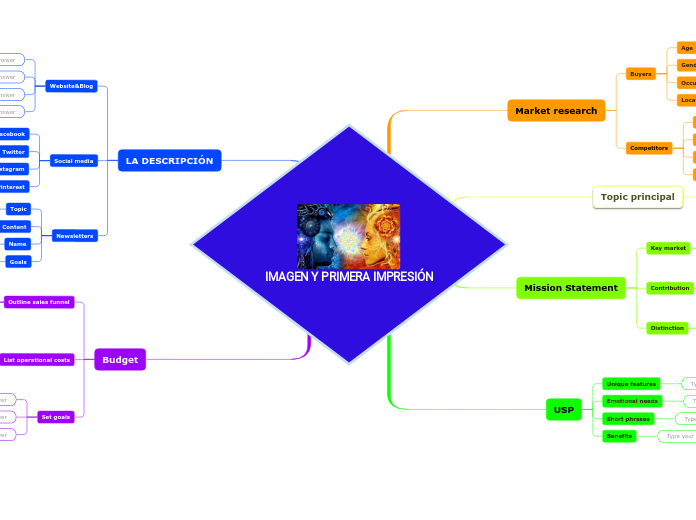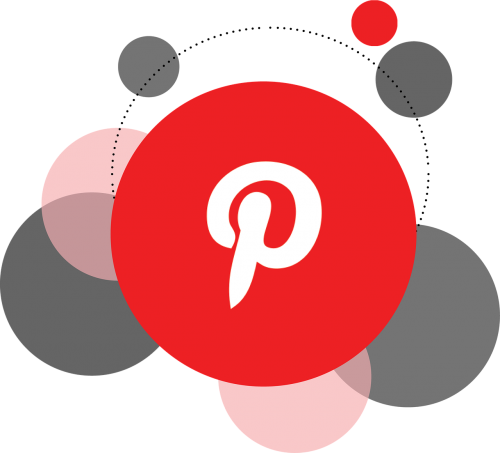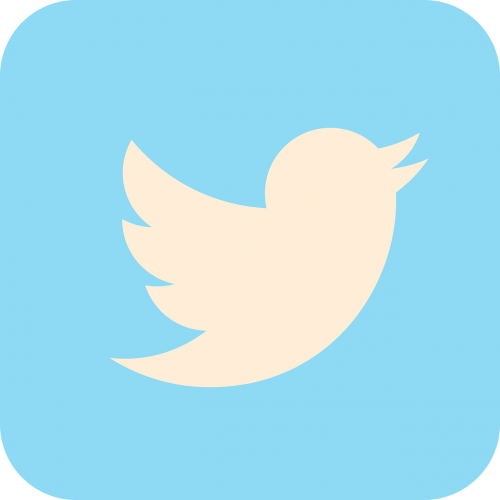av Erika Carrillo 4 år siden
411
IMAGEN Y PRIMERA IMPRESIÓN

av Erika Carrillo 4 år siden
411

Mer som dette
Type in the name of your marketing plan.
Include a complete breakdown of the costs of your marketing plan. Try to be as accurate as possible. You’ll want to keep tracking your costs once you put your plan into action.
How many leads do you need to convert the right number of sales?
How many sales do you need to make your revenue goal?
Assess how your marketing budget and goals work together. How much revenue do you need?
Assign a budget for advertising and online campaigns.
Specify the benefits of your sales and marketing personnel.
Set a budget for salaries and commissions for your employees.
Type your answer
How many of those opportunities close as new deals?
Type in your answer
How many site visits do you have per month?
How many leads convert into opportunities?
A successful marketing strategy is made up of many different tactics, including both online and offline options. Your goals, target audience, and industry play an important role in this decision.
Before planning the content for your newsletters, consider the following questions, then analyze the outcome.
What do you hope to achieve by sending an email newsletter to your subscribers?
What will you call your newsletter?
What types of content will you include in your newsletters?
Decide the specifics. What subject will your newsletter content focus on?
Engaging with your customers and leads on social media helps you build stronger customer relationships. Keep in mind that the content should be dedicated to the specificity of each platform.

Upload visual content to your Pinterest account to keep your audience engaged.
Plan your content for Instagram.

Plan your Tweets. Take into consideration the trending hashtags.

Plan your Facebook posts. Attach media resources if needed.
When putting together your content for your website and blog, try to provide value to your customers. Answer the following questions.
What content is currently trending in my niche?
Is there information or resources at my disposal that would interest or benefit my readers?
What challenges or questions do my customers have?
Who am I writing to/for? Check again the profile of your buyer from point Market research.
Determine what makes your business and its products/services different from others on the market.
Answering your customer's primary question: 'What's in it for me?'
Make it to the point and state it as a benefit to the customer.
Create phrases about your unique product or service that are short, clear, and concise.
Think from your customer's perspective decide what emotional need is being specifically met by your product or service.
List the features and benefits that are unique about your product or service
A mission statement consists of three components: key market, contribution and distinction. Take your time and define each of them.
What makes the product unique or why the audience should buy it over another?
What does your product or service do to contribute to society?
Define your the target audience. They are the people who are most likely to buy your products or services, and they are united by some common characteristics, like demographics and behaviors.
Collect information about the consumers, target markets and the clients of your company to assess how effective and popular your product or service is.
Know your competitors and improve your business' performance.
Are your competitors present and active on social media? Select from the list or add others.
Social media
Make a research on your competitors' pricing scheme and determine your next pricing move. Select from the below:
Identify the weaknesses of your competitors. Choose from the list or add others.
Identify the strengths of your competitors. Select from the list or add others.
Strenghts
Determine what you need to know about your consumers.
Select the location of your consumers
Select the industry your buyers come from
Industry your buyers come from
Select the gender of your buyers
Select the buyer's age range
Age range